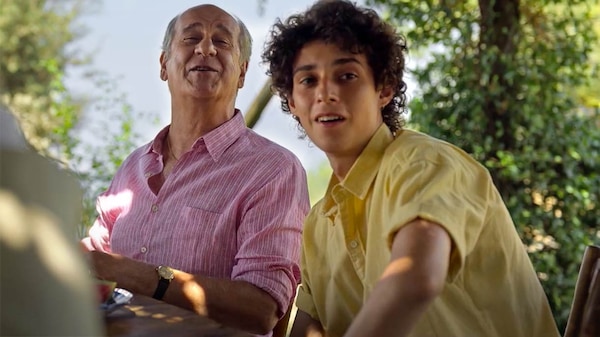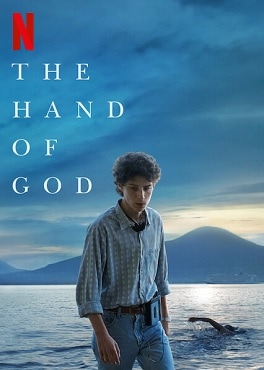The Hand of God review: Coming-of-age film by Paolo Sorrentino is an excruciatingly painful experience
A semi-autobiographical film of Sorrentino's teenage days, it stars Filippo Scotti, Toni Servillo, Teresa Saponangelo, Marlon Joubert, Luisa Ranieri, Renato Carpentieri, Massimiliano Gallo, Betti Pedrazzi, Biagio Manna and Ciro Capano. The film uses a few interesting elements but does not grip you due to its excruciatingly long runtime.

Last Updated: 09.39 PM, Dec 15, 2021
Story:
Set in the 1980s, the film is the story of a young and carefree Fabietto, played by Filippo Scotti who lives with his parents in Naples. It follows his lonely journey as he discovers himself after a tragic loss.
Review:
The film opens with an aerial view of the beautiful town of Naples, setting the expectation of a viewer high. Given the name of the movie and the first few scenes, the film gives a mysterious vibe and promises an intriguing watch but it fails to do so.
Set in the 1980s, the film is the story of a young and carefree Fabietto, played by Filippo Scotti who lives with his parents in Naples. It follows his lonely journey as he discovers himself after a tragic loss. The coming-of-age tale of Fabietto explores his teenage crushes that even includes his flamboyant aunt Patrizia, his love for football and his fascination for films and theatre.
Until over an hour of its runtime, there is no major development in the story. But sometimes, it gives you giggles as you find the characters in the dysfunctional family relatable as they include some gossipmongers, drama queens and kings, rude and mean and also 'crazy' people with over-the-top performances. It initially looks like the story of almost every family with weird characters but it gets onto your nerves as the drama does not seem to end or progress for over an hour of its runtime. It drags too long to introduce and describe each character. It is only when a tragic incident strikes Fabietto and his brother that you see some development in the plot.

But the film has quite a few interesting elements. Fabietto's sister Daniella is never seen on screen, except in one scene. She seems to be spending all her time in the bathroom and you only hear her speak. Another highlight of the movie is Fabietto's walkman. Until the last scene, you do not hear what is he playing in the walkman though he is always seen with it.
It leaves you wondering why the name of the film is called The Hand of God. The title is established only in the beginning of the second half of the movie when Fabietto gets lucky and escapes death. The priest is seen asking him how was he not at home at the time of the tragic event and he said he had gone to meet someone. The priest then says that he is blessed as he had 'the hand of God' on his head and escaped a horrible death. However, his luck does not seem good thereon as he struggles to figure out what he would like to do further in his life. Though he was planning to study philosophy, he changes his mind to filmmaking, inspired by all the auditions and theatre performances his brother has taken him to.
It promotes the popular idea that creativity comes out of a tragic life and the filmmaker, whom Fabietto goes after, refuses to teach him the art until he learns the truth about him. But it was nice to see how he wanted Fabietto to make movies in the city as there are many stories to tell but Fabietto, who then becomes ambitious, chooses to travel to Rome anyway as that's the hub of filmmaking.

Unlike most works of Italian writer-director Paolo Sorrentino, which is known for visually striking and extravagant style, the film The Hand of God uses a subtle tone throughout its narrative. However, Sorrentino hasn't given up his fascination for the human body completely in the drama as it includes a few nude scenes. But it addresses nudity in a positive and confident manner, promoting self-love.
The way the film ends is also interesting as it looks like it has completed an entire circle. It includes the little monk, who is introduced at the beginning of the movie, waving Fabietto goodbye. It hits a chord with you before the screen transitions into the black after a few seconds and the credits start rolling.
Verdict:
The film can be passed. It won't be a huge loss if you miss watching the film. It is too lengthy and even boring in many parts for even an artistic person to enjoy.
WHERE
TO WATCH
Subscribe to our newsletter for top content, delivered fast.

